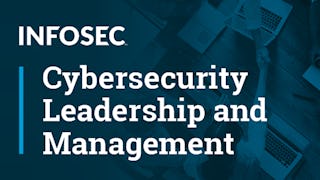This course explores democracy as a form of governance and its impact on development and public policy. Learners will examine the significance of democratic institutions in shaping development agendas and outcomes. Through comparative analysis, the course investigates how democracies and non-democracies differ in their approach to public policy, resource allocation, and citizen engagement. Key questions addressed include whether democracy promotes development, how policy outcomes vary across regimes, and whether democracies should be evaluated based on results. By the end of the course, learners will gain a nuanced understanding of the complex relationship between democratic governance and development effectiveness in diverse contexts.

Frühbucherrabatt! Schalten Sie 10.000+ Kurse von Google, Microsoft und mehr für £160/Jahr frei. Jetzt sparen.


Empfohlene Erfahrung
Was Sie lernen werden
Dive into democracy, governance, and development, focusing on representative democracy. Analyze its function, strengths, and limitations.
Kompetenzen, die Sie erwerben
- Kategorie: Political Sciences
- Kategorie: International Relations
- Kategorie: Economics
- Kategorie: Economic Development
- Kategorie: Public Administration
- Kategorie: Public Policies
- Kategorie: Social Justice
- Kategorie: Policy Development
- Kategorie: Policy Analysis
- Kategorie: Governance
- Kategorie: Law, Regulation, and Compliance
- Kategorie: Social Studies
Wichtige Details

Zu Ihrem LinkedIn-Profil hinzufügen
Juni 2025
23 Aufgaben
Erfahren Sie, wie Mitarbeiter führender Unternehmen gefragte Kompetenzen erwerben.

In diesem Kurs gibt es 7 Module
In this module, you will examine democracy as one form of governance. It discusses the significance of democracy for development policies. It explores public policy outcomes in democracies vis-à-vis nondemocratic systems of governance. You will find answers to questions, such as: Is democracy good for development? Does democracy have different public policy outcomes than nondemocracy? Should we judge democracy as an institution with results? If yes, what are those outcomes?
Das ist alles enthalten
8 Videos2 Lektüren3 Aufgaben
This module introduces you to different kinds of governance and governance reforms. It discusses how to assess the quality of governance. You will learn about different theoretical conceptions of governance and theoretical approaches to study governance, including rational choice and collective choice, new institutionalism, policy networks, and policy instruments.
Das ist alles enthalten
6 Videos2 Lektüren4 Aufgaben
This module focuses on state capacity and the state’s role in economic development. It examines various state forms, including the developmental state, predatory, regulatory, and corporatist state. Finally, you will examine the relationship between forms of state and types of democracy to understand democracy as a political practice for enhancing development.
Das ist alles enthalten
7 Videos2 Lektüren4 Aufgaben
In this module, you will learn about the importance of law for public policy following the discussion on state and governance. It begins with explaining why policies must conform to constitutional provisions and need the backing of law for enforcement. Further, it explains the rationale for separating powers between the executive, the legislature, and the judiciary. Finally, it elaborates on the centrality of the Rule of Law in constitutional democracies.
Das ist alles enthalten
6 Videos2 Lektüren3 Aufgaben
This module discusses the liberal utilitarian idea of justice. You will analyze alternative nonutilitarian ideas of justice proposed by John Rawls and Michael Sandel, followed by Amartya Sen’s attempt to revive a utilitarian conception of justice. It further discusses the legal systems in constitutional democracies based on justice. Finally, it examines how judicial review empowers the superior courts to interpret laws to do complete justice.
Das ist alles enthalten
6 Videos1 Lektüre3 Aufgaben
In this module, you will learn about the issues and problems that the state takes up and addresses through policy, the role that law plays in enforcing policies, and how law serves as an instrument of political power. The module explains the policy cycle by first identifying a problem or issue and then evaluating the policy chosen to address it, leading to policy modification. You will also examine how power plays a role in bringing some items into the policy agenda, keeping other things out, and persuading people to think about adversity as a virtue.
Das ist alles enthalten
6 Videos2 Lektüren3 Aufgaben
This module deals with the global impacts on national and local governance. You will learn how norms and provisions in international treaties shape national policies and laws. You will analyze why it is no longer possible for sovereign states to make policies independently of requirements of international institutions such as the World Bank, International Monetary Fund, the World Trade Organization and commitments given to the United Nations to realize the Sustainable Development Goals. You will also learn why national policies must focus on the imperatives of globalization.
Das ist alles enthalten
5 Videos2 Lektüren3 Aufgaben
Erwerben Sie ein Karrierezertifikat.
Fügen Sie dieses Zeugnis Ihrem LinkedIn-Profil, Lebenslauf oder CV hinzu. Teilen Sie sie in Social Media und in Ihrer Leistungsbeurteilung.
Auf einen Abschluss hinarbeiten
Dieses Kurs ist Teil des/der folgenden Studiengangs/Studiengänge, die von O.P. Jindal Global Universityangeboten werden. Wenn Sie zugelassen werden und sich immatrikulieren, können Ihre abgeschlossenen Kurse auf Ihren Studienabschluss angerechnet werden und Ihre Fortschritte können mit Ihnen übertragen werden.¹
Dozent

Mehr von Governance and Society entdecken
 Status: Kostenloser Testzeitraum
Status: Kostenloser TestzeitraumInfosec

University of North Texas

University of Michigan
 Status: Kostenloser Testzeitraum
Status: Kostenloser TestzeitraumO.P. Jindal Global University
Warum entscheiden sich Menschen für Coursera für ihre Karriere?





Neue Karrieremöglichkeiten mit Coursera Plus
Unbegrenzter Zugang zu 10,000+ Weltklasse-Kursen, praktischen Projekten und berufsqualifizierenden Zertifikatsprogrammen - alles in Ihrem Abonnement enthalten
Bringen Sie Ihre Karriere mit einem Online-Abschluss voran.
Erwerben Sie einen Abschluss von erstklassigen Universitäten – 100 % online
Schließen Sie sich mehr als 3.400 Unternehmen in aller Welt an, die sich für Coursera for Business entschieden haben.
Schulen Sie Ihre Mitarbeiter*innen, um sich in der digitalen Wirtschaft zu behaupten.
Häufig gestellte Fragen
Access to lectures and assignments depends on your type of enrollment. If you take a course in audit mode, you will be able to see most course materials for free. To access graded assignments and to earn a Certificate, you will need to purchase the Certificate experience, during or after your audit. If you don't see the audit option:
The course may not offer an audit option. You can try a Free Trial instead, or apply for Financial Aid.
The course may offer 'Full Course, No Certificate' instead. This option lets you see all course materials, submit required assessments, and get a final grade. This also means that you will not be able to purchase a Certificate experience.
When you purchase a Certificate you get access to all course materials, including graded assignments. Upon completing the course, your electronic Certificate will be added to your Accomplishments page - from there, you can print your Certificate or add it to your LinkedIn profile. If you only want to read and view the course content, you can audit the course for free.
You will be eligible for a full refund until two weeks after your payment date, or (for courses that have just launched) until two weeks after the first session of the course begins, whichever is later. You cannot receive a refund once you’ve earned a Course Certificate, even if you complete the course within the two-week refund period. See our full refund policy.
Weitere Fragen
Finanzielle Unterstützung verfügbar,
 enthalten
enthalten
